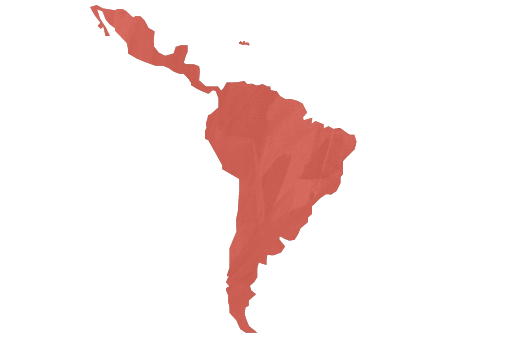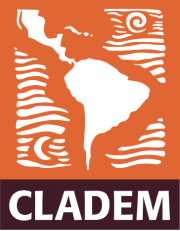Latin America and the Caribbean

Learn more about the data-driven advocacy work of EM2030 partner, CLADEM, and about LAC's performance in the SDG Gender Index.
The Latin American and Caribbean Committee for the Defense of Women’s Right (CLADEM), is a network of women’s rights organisations and activists, which was established in 1987 in Costa Rica after a sequence of discussions at the 3rd World Conference on Women of the United Nations in Nairobi. CLADEM advances women’s human rights and gender equality issues by monitoring international treaties, proposing legislative reforms, undertaking research and training, and organising group actions where needed. Key to CLADEM’s ability to monitor legislation and gender-related policy, as well as undertake their own advocacy and campaign work, is data and evidence.
Learn more about CLADEM’s data-driven advocacy work.
About gender equality in LAC :
2020 Index score: 67.6
2015 Index score: 67.0
Status: ‘No progress’ since 2015 and ‘poor’ overall score

Key findings
Latin America and the Caribbean has the second-highest overall score amongst the five global regions covered, but progress has stagnated on gender equality since 2015.
Latin America and the Caribbean (LAC) has the second-highest score on the 2022 SDG Gender Index amongst the five regions covered; however, its overall score has only risen just over half a point since 2015. Across the Sustainable Development Goals (SDGs), LAC has achieved its highest scores for SDG 7 on clean energy at 86 points (‘good’) and SDG 6 on water at 84 points (‘good’).
‘Fast progress’ has been made on SDG 5 on gender equality since 2015. On SDG 5 Costa Rica scores highest at 84 points in 2020, Mexico has improved by 14 points due to progress on women’s representation in parliament (Ind. 5.4) and ministerial roles (Ind. 5.5). The region has performed ‘very poor’ on legal grounds for abortion (Ind. 5.3) at just 30 points.
Although LAC has made notable ‘fast progress’ on SDG 9 on innovation and ‘some progress’ on SDG 16 on justice and SDG 17 on partnerships, it scores ‘very poor’ on all three in 2020. The regional score for SDG 13 on climate is also concerning, having moved in the ‘wrong direction’ since 2015.
‘No progress’ has been made on SDG 4 on education, while two-thirds of LAC countries have made ‘no progress’ or went in the ‘wrong direction’ on SDG 3 on health, with declines as high as 5 points in Venezuela. The ‘decline’ or ‘no progress’ on SDG 1 on poverty is almost universal across the region – only Chile, Honduras and Paraguay have made gains. Similarly, only two LAC countries have progressed on SDG 11 on sustainable cities.
Deep structural inequalities and disparities continue to hold back progress on SDG 10 on inequalities, with two of five indicators going in the ‘wrong direction’. Meanwhile, movement in the ‘wrong direction’ on women’s perceptions of housing costs (Ind. 11.1), household income (Ind. 1.4) and food costs (Ind. 2.4) may explain the stalling or decline in progress towards some goals.
All of these declines pre-date COVID-19. Evidence indicates that poverty and inequality have deepened since 2020, while food insecurity – closely linked to extreme poverty – affected over 40 per cent of the population in 2020 versus around 34 per cent in 2019.
Looking at overall country performance, not even the highest-scoring LAC countries – Uruguay, Costa Rica and Argentina – have made ‘fast progress’ since 2015. As for the lowest-scoring countries, Venezuela went in the ‘wrong direction’ and both Honduras and Guatemala have seen ‘some progress’.
Reflections from el Comité de América Latina y el Caribe para la Defensa de los Derechos de la Mujeres (CLADEM)
The 2022 SDG Gender Index shows that the Latin America and the Caribbean (LAC) region has made the slowest overall progress globally since 2015. Despite improving its performance on some indicators and Sustainable Development Goals (SDGs) – namely SDG 5 on gender equality and SDG 8 on work – the structural challenges that the region has historically faced explain the region’s stagnation and even reversal on key gender equality issues.
Poverty, inequality, corruption, authoritarianism, armed conflict, crime and urban violence, fragmented social protection systems, and regressive fiscal and economic policies have all driven social unrest across the region, which, in turn, has impacted progress on gender equality. The COVID-19 pandemic has exacerbated these structural problems and exposed the fragility of progress made.
Addressing the pervasive violence against girls and women in the region is critical. The persistence of harmful gender norms and stereotypes results in societal tolerance of violence, discriminatory laws, ineffective enforcement and lack of justice for girls and women. Three of the five LAC countries that have the lowest scores on SDG 16 on justice (Mexico, Guatemala and Honduras) face extensive impunity within the justice system. They are also amongst the countries with the highest number of femicides (Ind. 16.2) in the region. Efforts to prevent and eradicate all forms of violence, including sexual violence against adolescent girls and young women, have been insufficient, while anti-rights movements across LAC continue to impede access to safe and legal abortion (Ind. 5.3) – the region’s lowest-performing indicator for SDG 5 on gender equality – despite the alarming rates of forced child and adolescent pregnancies.
Women in vulnerable work (Ind. 8.2) is another issue that requires urgent solutions to reverse the trends shown by the Index. Research by ECLAC and UN Women indicates that COVID-19 has further worsened the situation for women on this indicator and exacerbated the unequal distribution of care work. The pandemic has prompted increasing advocacy efforts to implement comprehensive care systems – that ensure access to care for people who need it and guarantee the rights of those who provide it – to empower women and drive socio-economic recovery in the LAC region.
Finally, LAC faces significant challenges related to climate change (SDG 13) and growing migratory flows. Forced displacement (internal and cross-border) in the region has significantly increased due to environmental crises, violence and conflict, which disproportionally affect girls and women from rural, indigenous and black communities.
